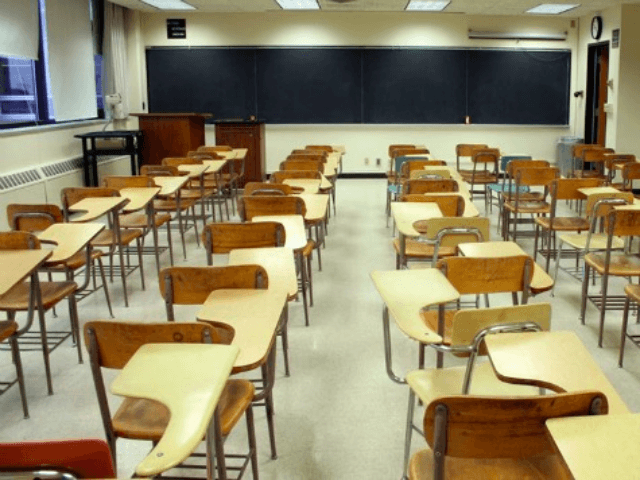One Texas lawmaker’s bill, if passed during the 2017 legislative session, stands to derail school choice options for failing campuses by taking them down a progressive community schools path and bypassing existing options that include re-purposing a campus as a public charter school.
State Senator Sylvia Garcia (D-Houston) pre-filed S.B. 193, a community schools bill in November with minimal media notice. It is a dead ringer for the failed 2015 community schools legislation H.B. 1891 from Austin Democratic Representative Eddie Rodriguez. His bill sought to transform failing campuses into community schools, avoiding closure, reconstitution, and/or reopening as a public charter school. At the time, alternative weekly the Austin Chronicle relished in H.B. 1891’s maneuver as “smart political jujitsu, turning the language of parental trigger bills and voucher advocates on its head.”
During the last legislative session, Garcia authored the companion senate-side community schools bills, including one for a community schools grant program. Under her present bill, once a school gets identified as failing for two years it would become a community school circumventing closure, reconstitution, and charter school repurposing.
Although presented as parent-teacher-community led partnerships, community schools are teachers union-backed U.S. Department of Education (USED) sanctioned institutions. In 2010, former U.S. Education Secretary Arne Duncan prescribed schools as the centers of the community. “Schools need to be open 12, 13, 14 hours a day, six, seven days a week, 12 months out of the year, with a whole host of activities, particularly in disadvantaged communities,” he said. In 2015, Duncan declared “Certain kids we should have 24/7…” which raised eyebrows across the nation.
A 2014 community schools promotional video touted expanded school days for instruction, health, nutrition, physical education, and “strong family and community engagement that includes access to crucial family support systems such as housing, language learning, and employment,” all while closing achievement gaps during and after school, on weekends, and over the summer with enrichment programs. They say community schools serve impoverished populations to interject vital and missing support systems.
That same year, American Federation of Teachers (AFT) President Randi Weingarten and Save Texas Schools Advisory Committee Chair Allen Weeks advocated in Austin for “Reclaiming the Promise through Community Schools.” In 2016, Texas AFT spokesman Rob D’Amico said six public schools in Austin and El Paso ISDs were community schools. The Coalition for Community Schools (CCS) claim there are more than 200 community schools nationwide.
AFT heavily promotes community schools. In September, they granted their Texas AFT affiliate $135,000 to hire a full-time statewide community schools coordinator who will create and manage community school partnerships throughout Texas. Recently, in California, United Teachers Los Angeles President Alex Caputo-Pearl leaned on pro-charter school L.A. Democrats to rally around the “unions behind a vision for community schools.”
These type of schools integrate social services right into the fabric of a school’s DNA, folding in programs for emotional and behavioral health, family support, youth development, service learning, wellness, social justice and even, parenting classes, along with a slew of public-private partnerships to creating a community-at-large where the public school becomes the “hub” of family life.
“The vision of a community school must be at the heart of emerging place-based initiatives, including Promise Neighborhoods, Choice Neighborhoods, cradle-to-career programs, and P-20 networks integrating educational opportunities from preschool through college,” noted Achieving Results Through Community School Partnerships, a 2012 CCS report sponsored by the George Soros funded Center for American Progress.
Wrap-around social welfare community schools also embrace trendy whole school, whole community, whole child (WSCC) frameworks and partner with the Collaborative of Academic, Social, and Emotional Learning (CASEL), the leading force behind feelings-based soft-skills competencies that cultivate “emotional” intelligence (EI) rather than academic acumen (IQ).
Anti-school choice activists portray community schools as a way to keep failing public schools from closing their doors and fending off charters because the struggling campus would transition into Texas community school with “district-level support.” Critics demonize charters, asserting they undermine traditional public schools by diverting “billions” of public taxpayer dollars away from their coffers, are run by private entities, are not held to the same accountability standards and, are not unionized. Interestingly, community schools employ the same reform “portfolio model” strategies as charters, are taxpayer funded, and seek public-private partnerships for resources and funding.
S.B. 193, like H.B. 1891, does not oppose all charter schools, though. It offers up specialized industry-certified types of charter pilot programs where private partners would pony up a minimum of $1 million for entities with “a successful history of providing education services, including industry certifications and job placement services, to adults 18 years of age and older whose educational and training opportunities have been limited by educational disadvantages, disabilities, homelessness, criminal history, or similar circumstances.”
Presently, the federal Every Student Succeeds Act (ESSA) includes a full service community schools program. DeEtta Culbertson, Texas Education Agency (TEA) spokeswoman, told Breitbart Texas it is a “local level decision” if a district decides to pursue the community schools route. “Many of the services mentioned are already underway in some of the districts – such as parenting classes, family support and youth development – to name a couple…But it’s really up to the local level how they want to implement and how to spend their funds,” she said.
Breitbart Texas reached out to Garcia about her bill. One time, a staffer said she was unavailable; another, her office did not respond to our inquiry.
Follow Merrill Hope, a member of the original Breitbart Texas team, on Twitter.

COMMENTS
Please let us know if you're having issues with commenting.